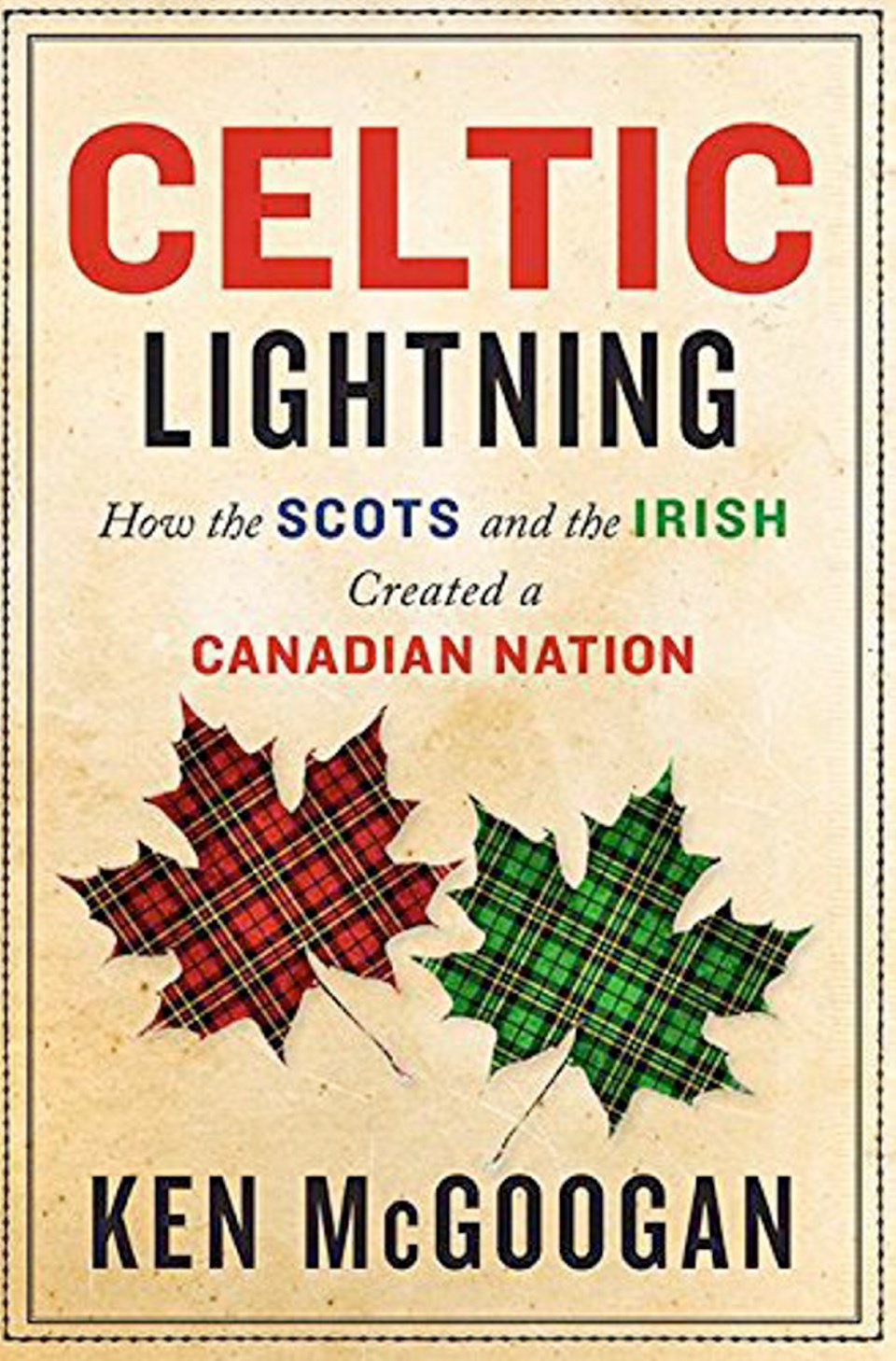Celtic Lightning: How the Scots and the Irish Created a Canadian Nation
By Ken McGoogan
HarperCollins, 382 pages, $29.99
_____________________
Strictly speaking, it should be difficult to argue that the Scots and the Irish, and not the English or the French or the Germans or the First Nations for that matter, created a Canadian nation. One would argue that they all took part, and should all share the credit.
But author Ken McGoogan sees things differently. He maintains that much of what makes this country great can be traced to Scotland and Ireland, with ideas and perseverance brought here by people from those lands.
With Celtic Lightning, McGoogan states his case in an engaging, and often personal, account. The Scots and the Irish are, he states, our common ancestors, and they live within us all.
As the author states, more than nine million Canadians — a quarter of us — can claim Scottish or Irish heritage. It is also true, however, that many Canadians can claim heritage from many countries, thanks to ancestors who moved around and married with roots in other countries.
But in McGoogan’s eyes, our Irish and Scottish roots are not just about pure genealogy, the tracing of a family history. It is about the genealogy of thoughts ideas and practices; the genealogy of our culture. And, he says, those Celtic influences were so strong that they helped create Canada.
The Scottish and Irish immigrants who landed on our shores came here with the beliefs they had grown up with, and they were here in such numbers that they played key roles in shaping the emerging nation.
This is not the first time McGoogan has tackled this topic, and Celtic Lightning might indicate an enlightening of sorts. Five years ago, McGoogan wrote How the Scots
Invented Canada, so it is possible that he will expand his thinking further in years to come.
For now, however, McGoogan cites five key Celtic values — independence, democracy, pluralism, audacity and perseverance — that he says still thrive in Canada.
To prove his point, he provides short biographies of 28 people of influence (as well as two groups) in the histories of Scotland, Ireland and Canada. He argues that the Canadian way of life can be traced back to these people, and to their lives.
It’s a convincing argument. The way that we think, as well as the things that we say and so, are influenced by the forces around us. The early European arrivals in Canada planted the seeds, certainly, and helped shape our government and our way of life.
One person featured in Celtic Lightning is Sir James Douglas, the former governor of British Columbia who helped shape Victoria, both as a fort and as a city. He is featured in the section on pluralism — which helped Canada become a multicultural, diverse country — due to his “Scotch West Indian” ancestry as well as his actions.
There are many reasons why Canada is what it is, both in terms of how we deal with each other and how we handle ourselves on the world stage. McGoogan’s work takes a long overdue look at the forces that helped to shape this land.
The reviewer is editor-in-chief of the Times Colonist.



